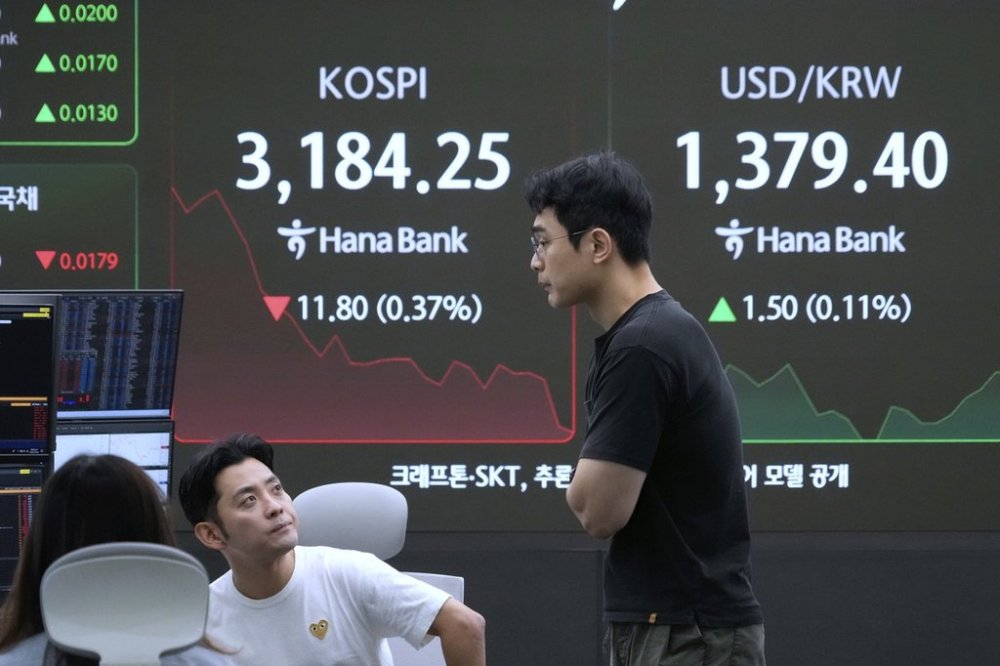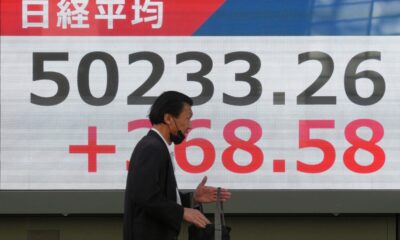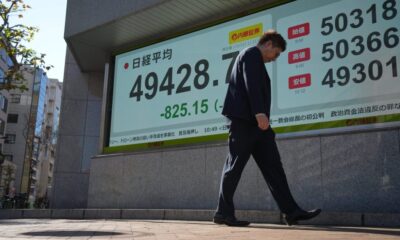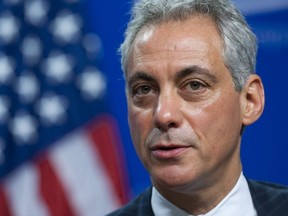World
Asian Markets React to Record U.S. Stocks Amid Trade Talks

Asian stock markets displayed mixed results on Monday following a record-setting week for U.S. stocks. The S&P 500, Dow Jones Industrial Average, and Nasdaq composite all reached new highs, fueled by optimism surrounding trade negotiations and corporate earnings. In Asia, investors reacted cautiously as they awaited further developments in trade talks between U.S. and Chinese officials.
Market Performance Across Asia
In Tokyo, the Nikkei 225 index fell by 1% to 41,056.81, influenced by uncertainties regarding a recent trade agreement between Japan and the United States. Officials have yet to formalize the terms of a $550 billion investment pledge, leaving many questions unanswered. Meanwhile, the Hang Seng index in Hong Kong rose by 0.4% to 25,490.45, while the Shanghai Composite index dipped by 0.2% to 3,587.25. Taiwan’s Taiex index also saw a modest increase of 0.3%.
In South Korea, the Kospi index remained largely unchanged at 3,195.49. Australia’s S&P/ASX 200 index increased by 0.3%, closing at 8,688.40. Indian markets showed slight declines, with the Sensex down by 0.1%. Notably, markets in Thailand were closed due to a holiday.
U.S. Economic Context and Corporate Earnings
On Friday, U.S. stocks closed on a high note, with the S&P 500 rising by 0.4% to 6,388.64, marking its fifth consecutive record. The Dow climbed by 0.5% to 44,901.92, and the Nasdaq composite increased by 0.2%, ending at 21,108.32.
Corporate earnings played a significant role in this bullish trend. Deckers, the brand behind Ugg boots and Hoka shoes, surged by 11.3% after reporting better-than-expected profits and revenue, particularly from international markets. In contrast, Intel’s shares fell by 8.5% after the company announced a quarterly loss and significant job cuts, reflecting ongoing challenges in a competitive tech landscape.
President Donald Trump’s trade policies continue to influence market dynamics. Hopes are high that upcoming trade discussions will yield agreements that alleviate the burden of tariffs, which have been a point of contention. Reports suggest that Trump is pushing for lower tariffs, aiming to stave off potential economic downturns.
As the week progresses, investor attention will shift towards a Federal Reserve meeting on interest rates. Trump has encouraged the Fed to consider rate cuts, suggesting that such measures could reduce government debt repayments. The prevailing sentiment among market analysts is that the Fed may opt to hold off on any rate changes until September, awaiting more comprehensive data on the economic impact of the current tariff landscape.
In early trading on Monday, U.S. benchmark crude oil prices increased by 24 cents to $65.40 per barrel, while Brent crude rose by the same margin to $67.90. The U.S. dollar strengthened slightly against the Japanese yen, rising to 147.72, while the euro exchanged at $1.1755, dipping from $1.1758.
The next few days will be crucial for markets as they respond to further developments in trade negotiations and economic indicators, shaping the outlook for investors globally.
-

 Politics4 weeks ago
Politics4 weeks agoSecwepemc First Nation Seeks Aboriginal Title Over Kamloops Area
-

 World5 months ago
World5 months agoScientists Unearth Ancient Antarctic Ice to Unlock Climate Secrets
-

 Entertainment5 months ago
Entertainment5 months agoTrump and McCormick to Announce $70 Billion Energy Investments
-

 Science5 months ago
Science5 months agoFour Astronauts Return to Earth After International Space Station Mission
-

 Lifestyle5 months ago
Lifestyle5 months agoTransLink Launches Food Truck Program to Boost Revenue in Vancouver
-

 Technology3 months ago
Technology3 months agoApple Notes Enhances Functionality with Markdown Support in macOS 26
-

 Lifestyle3 months ago
Lifestyle3 months agoManitoba’s Burger Champion Shines Again Amid Dining Innovations
-

 Top Stories2 months ago
Top Stories2 months agoUrgent Update: Fatal Crash on Highway 99 Claims Life of Pitt Meadows Man
-

 Politics4 months ago
Politics4 months agoUkrainian Tennis Star Elina Svitolina Faces Death Threats Online
-

 Sports5 months ago
Sports5 months agoSearch Underway for Missing Hunter Amid Hokkaido Bear Emergency
-

 Politics5 months ago
Politics5 months agoCarney Engages First Nations Leaders at Development Law Summit
-

 Technology5 months ago
Technology5 months agoFrosthaven Launches Early Access on July 31, 2025





















